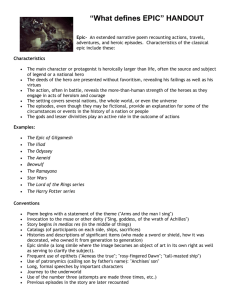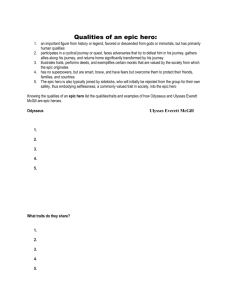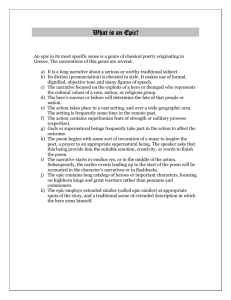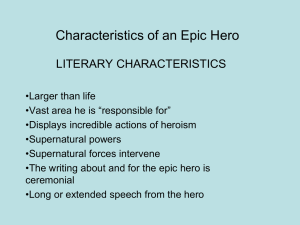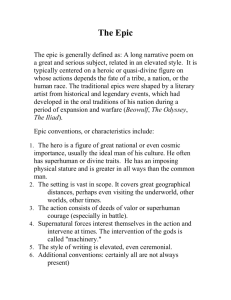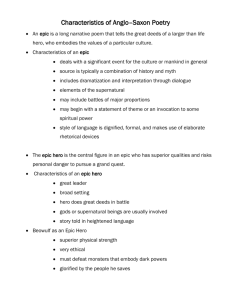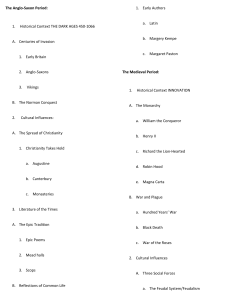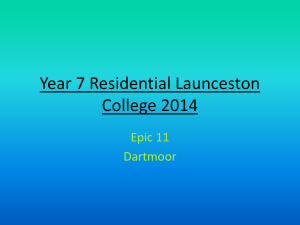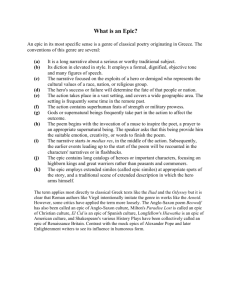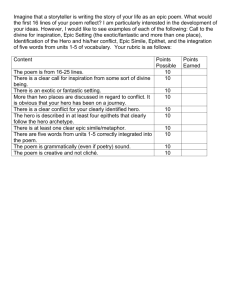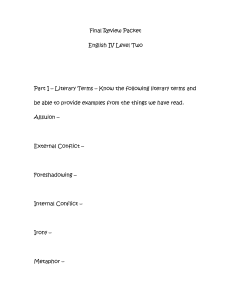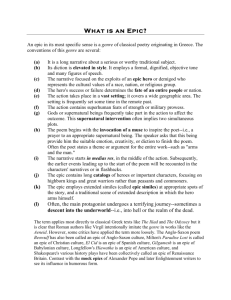Odyssey
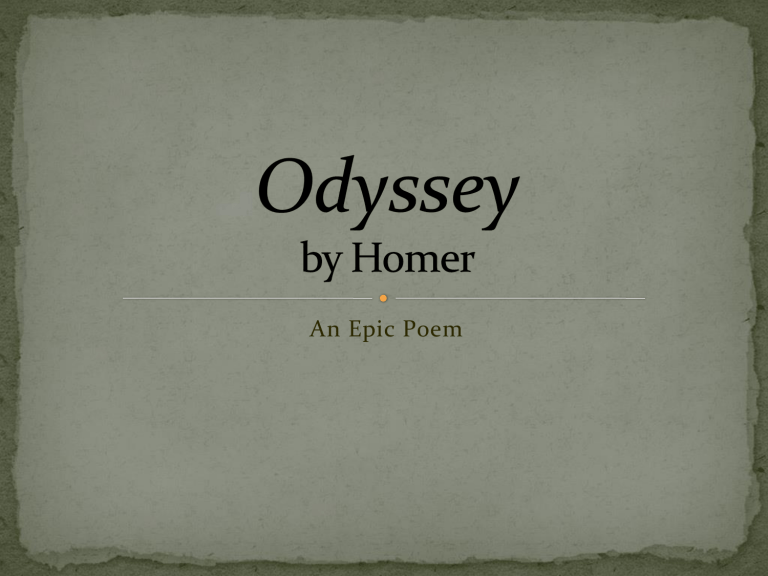
An Epic Poem
A long narrative poem that tells of the adventures of a single hero, who in some way embodies the values of his civilization
The setting is vast in scope, covering great geographical distances or even visiting the underworld, other worlds or other times
There is an epic hero – a physically impressive man with superhuman qualities who is of national or historical importance; he is glorified at the end
It contains epic similes, speeches, and battles
A quest or journey is undertaken in search of something of value
The style of writing is elevated, even ceremonial
There are supernatural forces involved
There is an opening statement of theme
There is an epic question asked
There is an invocation to a Muse, one of the nine daughters of Zeus, in order to ask for inspiration
It begins in media res (in the middle of things)
Earlier portions of the story appear later as flashbacks
There is an objective narrator
Catalogs and genealogies are given
These long lists of objects, places, and people place the finite action of the epic within a broader, universal context
Oftentimes, the poet is also paying homage to the ancestors of audience members
The epic hero:
Is a figure of great national importance from history or legend
Has superhuman qualities – including strength, bravery, and physical stature
Is a warrior, leader, and polished speaker
Must undertake a long, perilous journey facing trials and enemies that test his endurance and courage
Not only possesses the virtues and qualities that his people value, but is the cultural ideal of those values
Must face the final task of his epic journey alone
Returns home, a leader of his people
Extended comparisons that compare heroic or epic events to simple and easily understandable everyday events – events the audience would recognize instantly
They are often based on images from nature (lions, storms, deer, rivers) and everyday activities (fishing, herding)
They are lengthy and may continue for several lines
Fun fact – The Odyssey is 12, 110 lines
Traditional stories, rooted in a particular culture, that usually explain a belief, a ritual, or a mysterious natural phenomenon
They are essentially religious because they are concerned with the relationship between human beings and the unknown or spiritual realm
